Five newly awarded catalyst grants from the Graham Sustainability Institute will fund projects designed to advance potential infrastructure solutions across energy, transportation, and the built environment. The projects will facilitate climate change adaptation, test products aimed to reduce carbon emissions, and foreground equity and justice in sustainability interventions.
Since 2017, more than 30 projects have received funding through Graham’s catalyst grant program, which supports small-scale, collaborative, interdisciplinary sustainability research. The new projects will engage researchers from six units across the University of Michigan, as well as several other academic institutions, who will work alongside industry, government, and NGO partners.
“We are especially delighted that our industry and community partners—the eVinci micro reactor design team at Westinghouse and the Energy Communities Alliance—are working with us on this project,” said Aditi Verma, assistant research scientist in Nuclear Energy and Radiological Sciences and principal investigator of the project on participatory design processes in nuclear energy infrastructure. “These partnerships will ensure both that each stage of this research project is informed by the practical challenges and open questions faced by designers and communities, and that our research findings are speedily transformed into real-world practices.”
Other projects address the social and environmental dimensions of slum upgrading in Brazil; the tradeoffs between use of renewable fuels and vehicle electrification; the commercialization of a fully upcycled building façade material; and insurance and structural options to respond to Great Lakes shoreland hazards.
“We’re hoping to bridge the gap between academic research and industry knowledge,” said Meredith Miller, associate professor of Architecture and principal investigator of the building material project. “This project will provide essential links within a larger effort... Ideally those links prove helpful to the suppliers and others moving toward circular solutions in the region.”
Graham Sustainability Institute catalyst grants are open to all faculty and researchers across U-M’s three campuses. Each of the five featured research teams will receive $10,000.
To learn more about the projects, read on and visit the project web pages linked below.
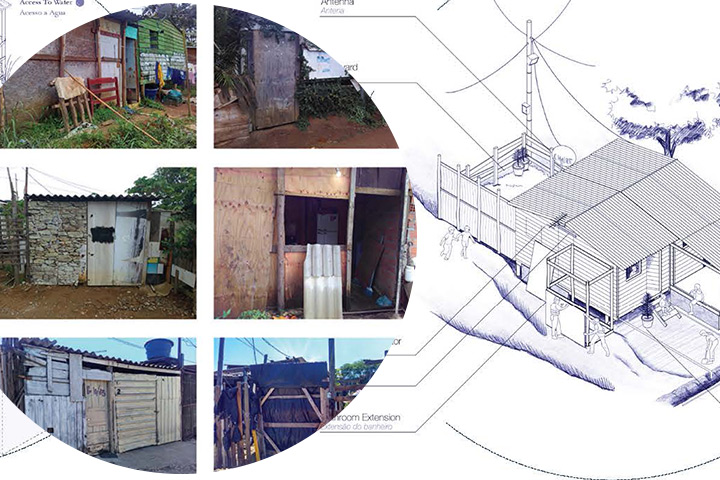 Women, non-binary, Black, Brown, and Indigenous residents living in informal and precarious communities in the southern periphery of São Paulo, Brazil, are extremely vulnerable to climate impacts. Facing scant government investment, poverty, inequality, land tenure uncertainty, and marginalization, the neighborhood residents have taken on the work of upgrading their settlements.
Women, non-binary, Black, Brown, and Indigenous residents living in informal and precarious communities in the southern periphery of São Paulo, Brazil, are extremely vulnerable to climate impacts. Facing scant government investment, poverty, inequality, land tenure uncertainty, and marginalization, the neighborhood residents have taken on the work of upgrading their settlements.
This project will bring the lived experiences of these community stewards to the forefront, complementing a growing body of scholarship on slum ecology and the environmental dimensions of slum upgrading in Brazil while pinpointing transformational strategies to improve settlements through climate adaptation and mitigation. The project aims to advance women-led slum upgrading that is climate-resilient and responsive to issues of intersectionality and justice, shining a light on the struggles and accomplishments these invisible climate warriors face as they fight to transform their settlements into lasting, resilient communities.
Project team: María Arquero de Alarcón, PI (Taubman); Ana Paula Pimentel Walker, Co-I (Taubman); Mieko Yoshihama (SSW); Odessa Gonzalez Benson (SSW)
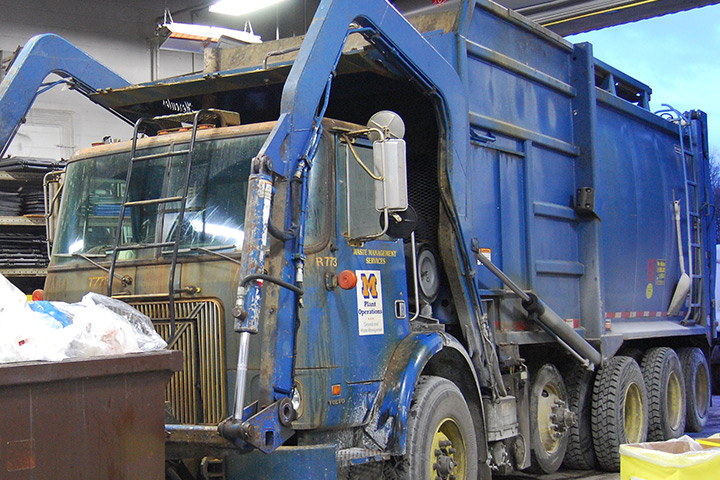
Renewable fuels have the potential to provide dramatic reductions in carbon footprint (>70%) quickly without requiring new infrastructure, mineral resource extraction, or carbon-intensive manufacturing. However, one major challenge to implementation is lack of end-user confidence in these fuels.
To address this barrier, this catalyst grant will fund the planning and implementation of a new demonstration that involves operating a North Campus refuse truck on 100% renewable fuel, in partnership with U-M Transportation and Waste Services. Through side-by-side analyses of fuel economy and vehicle performance of a refuse truck operating on diesel fuel and an identical refuse truck operating on 100% renewable fuel, U-M and other fleet operators will have access to a real-world comparison of ownership cost and greenhouse gas emissions reductions. The research team’s goal is to promote expanded conversion of diesel vehicle fleets to operation on 100% renewable fuels.
Project team and partners: André L. Boehman, PI (Engineering); Shelie Miller, Co-I (SEAS); William McAllister (Transportation and Waste Services); Scott Guenther (Transportation and Waste Services); Samuel Moran (Transportation and Waste Services); David Slade (Renewable Energy Group, Inc.)
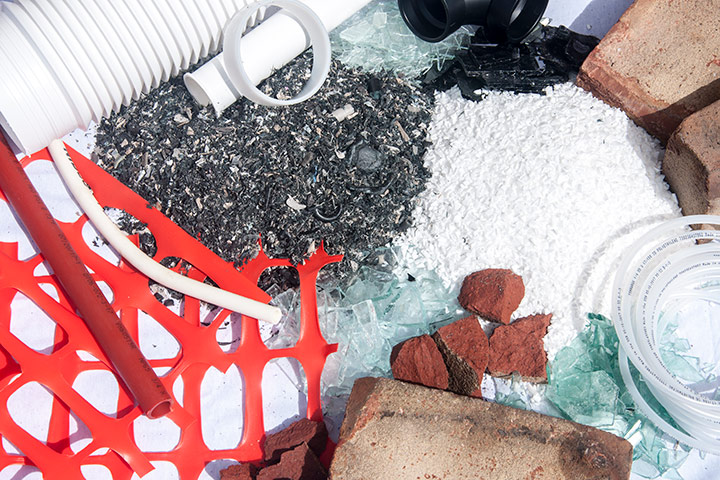 Encouraging a more circular economy is a key strategy in combating climate change. Partnerships between research and siloed industries can help connect the dots, identifying new downstream applications that add value to upstream waste materials and capture carbon in long-lasting products. The Post Rock research initiative seeks to do just this by offering circular solutions for waste plastics and other materials through new architectural applications.
Encouraging a more circular economy is a key strategy in combating climate change. Partnerships between research and siloed industries can help connect the dots, identifying new downstream applications that add value to upstream waste materials and capture carbon in long-lasting products. The Post Rock research initiative seeks to do just this by offering circular solutions for waste plastics and other materials through new architectural applications.
Post Rock has gone through two rigorous phases of customer discovery, focusing the material research development toward a specific end use. With this catalyst grant, the research team can take the critical next step toward commercialization: establishing a regional supply of source material, which potentially could fully comprise waste diverted from regional streams. Researchers plan to leverage the unique regional context of southeast Michigan and northwest Ohio, which offers a wide range of materials flowing through various industries.
Project team: Meredith Miller, PI (Taubman); Volker Sick, Co-PI (Engineering); Christopher Humphrey (Taubman); Thom Moran (Taubman)
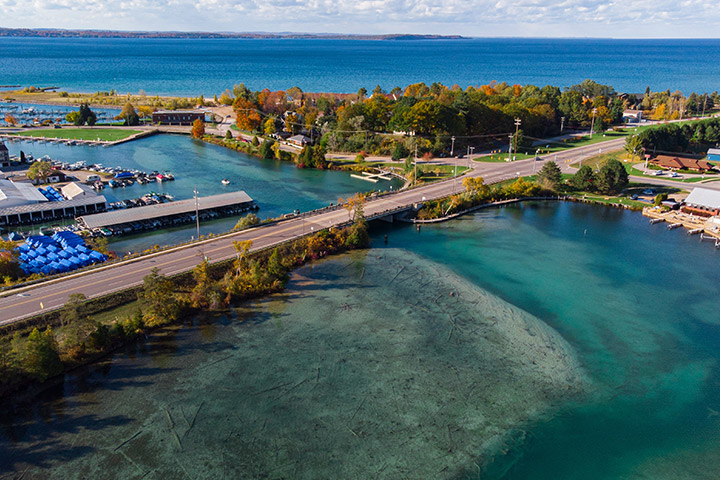
Coastal development is threatening Great Lakes shores and beaches—increasingly degrading the shoreline and putting developed properties at risk from storm impacts, lake level fluctuations, and shoreline recession. Too often, the human response is to install seawalls, revetments, and other structures. These attempts to outmatch nature are not ecologically, socially, or economically sustainable.
Instead, to inform better management decisions, this project will address specific factors, such as how insurance options might influence individual property development decisions, whether structure design in high-hazard coastal settings might be improved to reduce vulnerabilities, and whether and how community planning efforts are addressing these interrelated questions. Bringing together four academic disciplines, all collaborating actively with six different end users, the project will produce informational materials for end users and their constituents and an action plan to extend the work and secure additional funding.
Project team: Richard K. Norton, PI (Taubman); Kyle Logue, Co-I (Law); Steven Mankouche, Co-I (Taubman); Jono Sturt, Co-I (Taubman); Erin Bunting (Michigan State University); Ethan Theuerkauf (Michigan State University); Guy Meadows (Michigan Technological University)
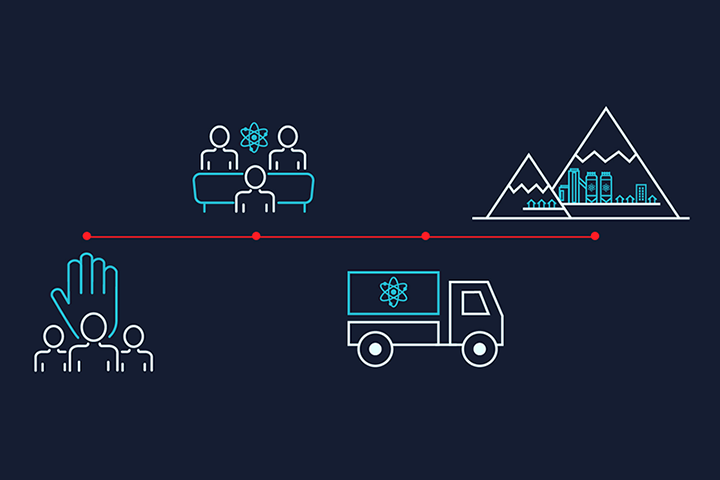 Understanding that nuclear energy’s powerful potential to advance decarbonization of the energy sector is compromised by a number of legacy issues, many nuclear reactor designers are actively trying to avoid repeating history’s missteps by designing smaller, less complex, potentially factory-fabricable, safer reactors. However, both designers and host communities lack a systematic approach to engage with each other such that community input can be incorporated into reactor design.
Understanding that nuclear energy’s powerful potential to advance decarbonization of the energy sector is compromised by a number of legacy issues, many nuclear reactor designers are actively trying to avoid repeating history’s missteps by designing smaller, less complex, potentially factory-fabricable, safer reactors. However, both designers and host communities lack a systematic approach to engage with each other such that community input can be incorporated into reactor design.
This project will lay the groundwork for the development of a participatory approach to the design of nuclear energy infrastructure. Building on previously developed participatory design approaches in other engineering domains and insights garnered through consultations with reactor designers at Westinghouse and host community members, the research team aims to secure long-term funding to produce a methodology that can be used to develop small reactors that serve as community-scale power supplies. This important work will help ensure the equitable and just deployment of new nuclear energy.
Project team and partners: Aditi Verma, PI (Engineering); Shanna Daly, Co-PI (Engineering); Michael Craig, Co-PI (SEAS); Diane Hirshberg (University of Alaska Anchorage); Tim Kalke (Sustainable Energy for Galena, AK); Joseph Halackna (Westinghouse); Harold Maguire (Westinghouse); Kara Colton (Energy Communities Alliance)
The catalyst grant program at the Graham Sustainability Institute is administered by Maggie Allan ([email protected]). Visit graham.umich.edu/catalyst to learn more about the program.